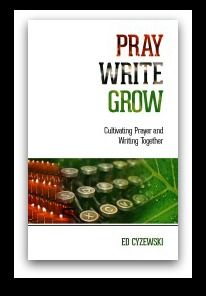You don’t have to be determined to avoid self-reflection these days. Most of us carry app-filled smart phones in our pockets to provide constant stimulation and distraction. Binge-watching shows on Netflix, social media, and even books all offer a ready escape from being alone with ourselves. Podcasts were my favorite way to avoid self-reflection until I tried going without them for a single walk two years ago.
After watching my productivity and free time slump for months, thanks to the two-hour walks our son required for a morning nap (believe me, we tried everything else), I had a break-through plan. I decided to ditch podcasts and use my walks to either think of fresh writing ideas or pray.
Mind you, I love podcasts. I hardly did anything without a podcast two years ago. I believed I was on the brink of a productivity explosion. I set off on my walk and promptly drove myself crazy with worry. Questions darted every which way in my mind:
• What did my new client really think of me?
• Would he even pay on time?
• What about that next book project? Would the editor go for it?
• Will people actually want to read it?
• Do people even take me seriously as an author?
• Who am I kidding? I’m going down in flames.
• What if we go broke?
• Do I need to find a new career?
• What would I put on my resume?
After this quick descent into white knuckling anxiety that left me short of breath alongside an ironically tranquil river, I opted to return to my podcasts for the next walk. In fact, the podcasts were just one of the many ways I avoided being alone with my thoughts.
Why we medicate through distraction
When I finally turned off my podcasts, here’s what I discovered: I desperately need self-reflection, but I avoid it. Here are a few reasons why:
It’s easier to watch other people reflect on themselves: Sign me up for an afternoon watching other people bare their souls on Facebook. It’s far more difficult to turn my gaze inward.
Distractions are good by themselves: We can always tell ourselves there’s nothing wrong with using a smart phone, watching television, or listening to podcasts. However, too much time devoted to these things may leave little space for self-reflection.
We fear there’s no cure for our fears: It was terrible to finally face my anxiety and fears. When I talked with my wife and a few trusted friends about the things I uncovered during my walk, I realized that a big contributor to my resistance was the fear that I couldn’t change anything.
We’re genuinely busy: My life back then was full, and with another kid added to the pack, it’s even crazier now. Self-reflection demands sacrifices and changes to our schedules. It has to be a conscious choice.
We don’t see how it could help: When I first set out on my walks, I didn’t see how self-reflection could actually help. However, I now recognize the sources of my anxieties and worries, and I’m learning ways to deal with them.
We don’t know where to begin: Although I started out well-intentioned on that first walk, I could have used structure or guidance for my self-reflection. Even if we know that self-reflection could help us and we’re prepared to make time to deal with the worries and concerns bubbling beneath the surface, it’s hard to know where to begin.
Cultivating Self-Reflection
It has taken a lot of trial and error to find healthy practices of self-reflection. I now use the spiritual exercise known as the Examen (via the “Examine” app) as a guide to self-reflection.
When I take walks, I pay attention to my body. Am I gripping the stroller tightly? Am I short of breath? Am I clenching my teeth? If so, then I need to explore my thoughts, especially through free writing or journaling. Why is a certain topic causing these reactions?
Awareness of my body’s physical signs of anxiety helps me stop in order to ask probing questions about the root causes of anxiety. Rather than just assuming my anxiety must have a reasonable basis, I assume that some probing questions will help, especially if I seek out a friend’s counsel later.
Lastly, I often resort to either reciting prayers or centering prayer throughout my day—the latter is typically a single word that I use to center my thoughts on God’s presence. You don’t have to pray if that’s not your thing, but I’ve found that left to my own devices, my mind can wander to the worst-case scenario in no time. These prepared words offer a sanctuary of sorts and redirect my thoughts to healthy places.
How do you practice self-reflection? Is there one particular barrier that keeps you from it?

This post was adapted from Pray, Write, Grow: Cultivating Prayer and Writing Together. The $.99 pre-order sale ends March 10, 2015. The price goes up to $1.99 for its release on March 11-13. Order your copy here:
Kindle | Nook | Kobo | Print



